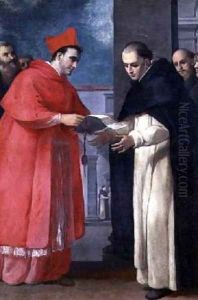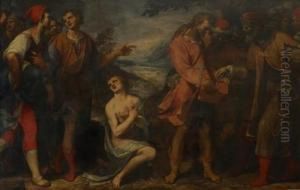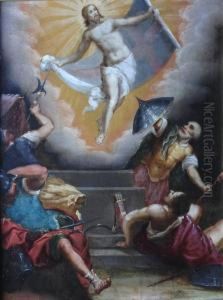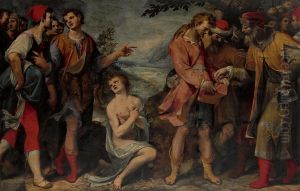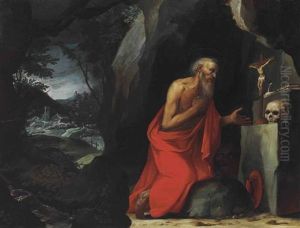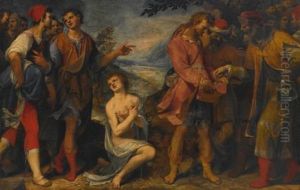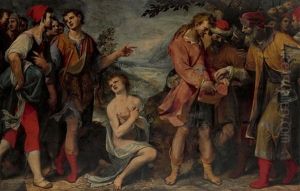(attr.) Mascagni, Donato (Fra Arsenio) Paintings
Donato Mascagni, also known as Fra Arsenio, was an Italian painter of the early Baroque period. Born in 1579 in Florence, Mascagni was a prominent artist during the late Renaissance and early Baroque periods in Italy. He was a member of the Carmelite order, which influenced his moniker 'Fra Arsenio.' His religious affiliation played a significant role in the subjects of his art, as he mainly focused on religious themes and was primarily active in producing artworks for churches and religious institutions.
Mascagni trained under the guidance of important artists of his time, such as Bernardino Poccetti. However, he developed his own distinct style that was characterized by a sense of realism and attention to detail. His work is often noted for its dramatic use of light and shadow, which reflects the Baroque fascination with chiaroscuro and the theatricality of images.
Throughout his career, Mascagni worked on various projects, including frescoes, altarpieces, and other religious artworks. One of his most famous works is the fresco cycle he painted for the Carmine Church in Pisa, which depicts scenes from the life of the Prophet Elijah. Mascagni’s work was well-regarded in his time, and he was commissioned by several religious orders to decorate their churches and convents.
Donato Mascagni died in 1636, leaving behind a legacy of work that contributed to the development of Baroque art in Italy. His paintings are celebrated for their devotional intensity and their contribution to the religious and artistic life of the period. While he may not be as well-known as some of his contemporaries, Mascagni's art remains an important part of the history of Italian painting.
